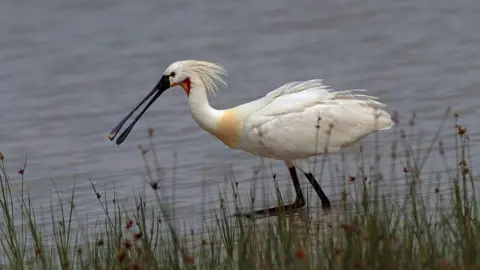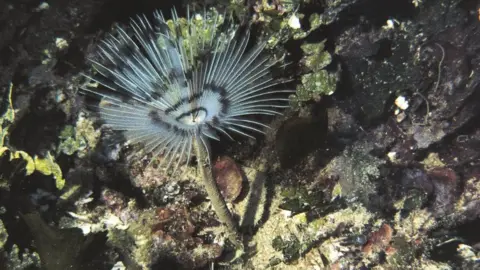Rare birds to be protected at Poole Harbour
 Getty Images
Getty ImagesRare and endangered birds will be protected with the expansion of a Site of Special Scientific Interest (SSSI) in Dorset, Natural England has said.
A further 1,800 hectares (4,450 acres) of land and sea at Poole Harbour is to be moved into the SSSI.
Its saltmarshes and mudflats are a feeding and breeding ground for seabirds including spoonbills, avocets and black-tailed godwits.
They are all listed on Schedule 1 of The Wildlife and Countryside Act.
Spoonbills are also described as a "very rare breeding bird" in the UK by the RSPB.
 Getty Images
Getty ImagesNatural England said: "Below the waves, seagrass beds flourish in the shallows while the channels hide the spectacular peacock worm and a rich variety of other marine species including sponges, sea squirts and tube worms."
Emma Rance, marine conservation officer at Dorset Wildlife Trust, said the seagrass beds "provide refuge for juvenile fish and shellfish which become a rich food source for overwintering and roosting seabirds".
More than 4,100 hectares (10,100 acres) of the harbour are already protected within the SSSI.
This SSSI extension connects to heathland as well as marine habitat protected under the Bluebelt programme, including Poole Rocks Marine Conservation Zone (MCZ), and Studland Bay proposed MCZ.
"These habitats also play an important role in providing tourism and recreational benefits, supporting a thriving commercial shellfish fishery and offering natural flood defence and cleaner water," Natural England said.
